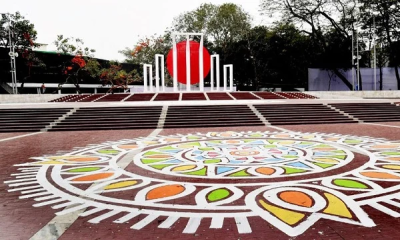October 2025 has been recorded as the deadliest month for dengue in Bangladesh this year, with 80 fatalities and the highest monthly caseload, according to data from the Directorate General of Health Services (DGHS).
DGHS statistics reveal that 2,250 dengue cases were detected in October alone — the year’s highest monthly total — marking a sharp rise in the mosquito-borne disease that continues to pose a persistent public health challenge.
In comparison, health authorities reported 76 deaths in September, 41 in July, and 39 in August. The overall death toll from dengue reached 278 in the first ten months of the year.
Meanwhile, in the latest 24-hour count on Friday, 506 new infections were reported, pushing the total number of confirmed cases in 2025 to 69,862.
DGHS Director General Prof. Dr. Md. Abu Jafor stated at a press briefing on October 9 that although the number of dengue infections has increased compared to last year, the fatality rate has declined.
Last year, dengue claimed 575 lives, while the country saw its worst outbreak in 2023, when over 1,700 people died — the highest number since records began.
Of this year’s deaths, 134 occurred under Dhaka South City Corporation, 41 under Dhaka North, 40 in Barishal division, 25 in Chattogram, 12 in Mymensingh, 8 in Khulna, 3 in Dhaka division (outside city areas), and 1 in Sylhet.
In terms of infections, Barishal City Corporation reported the highest number of cases — 17,224 — followed by Dhaka division (outside city areas) with 11,548, Chattogram division with 10,092, Dhaka South City Corporation with 10,192, Dhaka North City Corporation with 9,112, Rajshahi with 4,298, Khulna with 3,543, Mymensingh with 2,203, Rangpur with 794, and Sylhet with 239 cases.
Health experts say dengue has now become an endemic disease in Bangladesh, driven by the effects of climate change. Unpredictable rainfall, longer monsoon seasons, stagnant water, and higher temperatures have created ideal breeding conditions for Aedes aegypti and Aedes albopictus mosquitoes.
They warn that traditional control methods like fogging and larvicide application are becoming less effective as mosquito behaviour and breeding patterns evolve. Experts are calling for intensive scientific research to understand how climate shifts are influencing mosquito ecology, which they say is vital for developing sustainable prevention and containment strategies.
Public health authorities fear that without urgent, coordinated action, dengue could soon become a year-round threat, further straining Bangladesh’s healthcare system.




-20260106082251.webp)

-20251231101531.webp)







-20260221022942.jpg)
-20260221022827.webp)







-20260220065859.jpeg)















